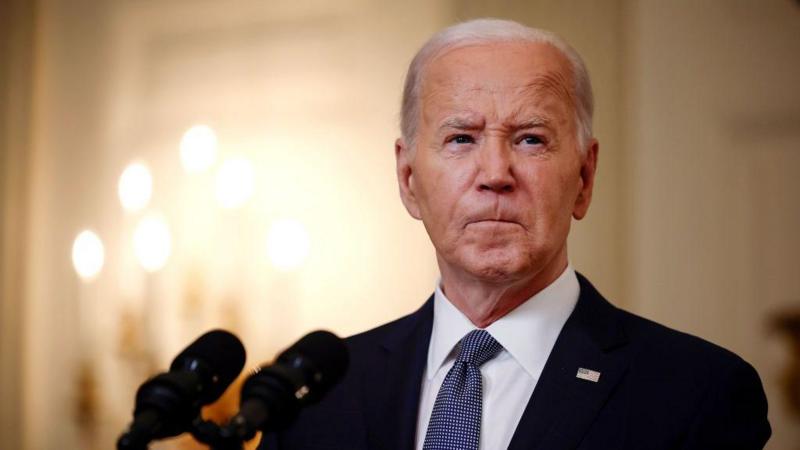“Biden Gaza war proposal, Israeli ceasefire plan, Hamas response to ceasefire, Gaza conflict resolution, humanitarian aid Gaza, Gaza reconstruction plan, Biden Middle East peace, Israel Hamas ceasefire, US diplomatic efforts Gaza, Gaza war news 2024”
“President Joe Biden reveals a new Israeli proposal aimed at ending the Gaza conflict, urging Hamas to accept a three-part plan involving a ceasefire, humanitarian aid, and reconstruction. Discover the key details, international reactions, and the potential impact on the region’s future.”

In a significant move aimed at ending the ongoing conflict in Gaza, U.S. President Joe Biden has unveiled a new Israeli proposal, urging Hamas to accept it. Speaking at the White House, Biden declared, “It’s time for this war to end.” The proposal is structured into three parts, focusing on a ceasefire, humanitarian aid, and long-term reconstruction.
The Three-Part Proposal
The proposal begins with a six-week ceasefire, during which the Israel Defense Forces (IDF) would withdraw from populated areas in Gaza. This initial phase aims to halt the immediate violence and provide a window for humanitarian aid to flow into the beleaguered region. Biden emphasized the need for a “full and complete ceasefire,” highlighting that this would allow 600 trucks carrying aid to enter Gaza daily.
The second phase involves the return of all remaining living hostages, including male soldiers, and transitioning the ceasefire into a permanent cessation of hostilities. This phase is crucial for ensuring the safety and return of captives, as well as establishing a lasting peace.
The third phase focuses on a “major reconstruction plan” for Gaza. This includes the return of deceased Israeli hostages’ remains and extensive rebuilding efforts with U.S. and international assistance. The reconstruction plan aims to restore homes, schools, and hospitals, laying the groundwork for a stable future for Gaza’s residents.
International Reactions
The proposal has garnered international support. UK Foreign Secretary David Cameron took to X (formerly Twitter) to urge Hamas to accept the deal, stating that “we’ve long argued a stop in the fighting can be turned into a permanent peace if we are all prepared to take the right steps.” Cameron’s sentiments were echoed by UN Secretary General Antonio Guterres, who also welcomed Biden’s initiative and called for all parties to seize this opportunity for peace.
Despite the broad support, the proposal faces significant challenges. Israeli Prime Minister Benjamin Netanyahu has previously opposed ending the war as part of a ceasefire deal. However, Biden’s direct appeal to the Israeli leadership and public highlights the urgency and potential of the proposal. “I’ve urged the leadership in Israel to stand behind this deal,” Biden said, addressing the Israeli people and emphasizing that “we can’t lose this moment.”
Hamas’ Response
Hamas has responded positively to the proposal, particularly due to its call for a permanent ceasefire and the withdrawal of Israeli forces from Gaza. The group has expressed readiness to “deal positively and constructively” with any proposal centered on a permanent ceasefire, provided Israel commits to it explicitly.
However, a Palestinian official familiar with the negotiations pointed out that the proposal does not guarantee an end to the war or a complete withdrawal of IDF troops from Gaza. This uncertainty highlights the complexity of the negotiations and the need for clear commitments from all parties involved.
Broader Diplomatic Efforts
The U.S. administration has been actively seeking support for the proposal from key regional players. U.S. Secretary of State Antony Blinken has reached out to counterparts in Jordan, Saudi Arabia, and Turkey to build broader support. Blinken emphasized that Hamas should accept the deal and urged countries with ties to Hamas to press the group to agree without delay.
Domestically, Biden has faced increasing criticism over the level of U.S. support for Israel, with calls to encourage negotiations more actively. The proposal comes at a critical juncture, with rising civilian casualties in Gaza adding to the urgency for a resolution.
The Road Ahead
The Israeli proposal, facilitated by the U.S., marks a significant step towards ending the conflict in Gaza. While the path to peace is fraught with challenges, the structured approach of ceasefire, humanitarian aid, and reconstruction provides a comprehensive framework for addressing the immediate and long-term needs of the region.
In conclusion, President Biden’s unveiling of the Israeli proposal is a pivotal moment in the ongoing Gaza conflict. With international support and a structured plan, there is hope for a cessation of hostilities and the beginning of a lasting peace. However, the success of this proposal hinges on the willingness of all parties to commit to the outlined steps and work towards a common goal of peace and reconstruction.
Read More-